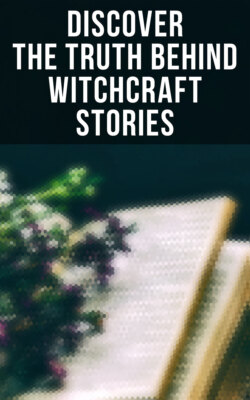Читать книгу Discover the Truth Behind Witchcraft Stories - William Godwin - Страница 215
На сайте Литреса книга снята с продажи.
Chapter I.
Roger Bacon: The True and the Legendary
ОглавлениеTable of Contents
It was in the early years of the fourteenth century that the two pseudo-sciences of alchemy and astrology, the supposititious sisters of chemistry and astronomy, made their way into England. At first their progress was by no means so rapid as it had been on the Continent; for in England, as yet, there was no educated class prepared to give their leisure to the work of experimental investigation. A solitary scholar here and there lighted his torch at the altar-fire which the Continental philosophers kept burning with so much diligence and curiosity, and was generally rewarded for his heterodox enthusiasm by the persecution of the Church and the prejudice of the vulgar. But by degrees the new sciences increased the number of their adherents, and the more active intellects of the time embraced the theory of astral influences, and were fascinated by the delusion of the philosopher’s stone. Many a secret furnace blazed day and night with the charmed flames which were to resolve the metals into their original elements, and place the pale student in possession of the coveted magisterium, or ‘universal medicine.’ At length the alchemists became a sufficiently numerous and important body to draw the attention of the Government, which regarded their proceedings with suspicion, from a fear that the result might injuriously affect the coinage. In 1434 the Legislature enacted that the making of gold or silver should be treated as a felony. But the Parliament was influenced by a very different motive from that of the King and his Council, its patriotic fears being awakened lest the Executive, enabled by the new science to increase without limit the pecuniary resources of the Crown, should be rendered independent of Parliamentary control.
In the course of a few years, however, broader and more enlightened views prevailed; and it came to be acknowledged that scientific research ought to be relieved from legislative interference. In 1455 Henry VI. issued four patents in succession to certain knights, London citizens, chemists, monks, mass-priests, and others, granting them leave and license to undertake the discovery of the philosopher’s stone, ‘to the great benefit of the realm, and the enabling the King to pay all the debts of the Crown in real gold and silver.’ On the remarkable fact that these patents were issued to ecclesiastics as well as laymen, Prynne afterwards remarked, with true theological acridity, that they were so included because they were ‘such good artists in transubstantiating bread and wine in the Eucharist, and were, therefore, the more likely to be able to effect the transmutation of base metals into better.’ Nothing came of the patents. The practical common-sense of Englishmen never took very kindly to the alchemical delusion, and Chaucer very faithfully describes the contempt with which it was generally regarded. Enthusiasts there were, no doubt, who firmly believed in it, and knaves who made a profit out of it, and dupes who were preyed upon by the knaves; and so it languished on through the sixteenth and seventeenth centuries. It seems at one time to have amused the shrewd intellect of Queen Elizabeth, and at another to have caught the volatile fancy of the second Villiers, Duke of Buckingham. But alchemy was, in the main, the modus vivendi of quacks and cheats, of such impostors as Ben Jonson has drawn so powerfully in his great comedy—a Subtle, a Face, and a Doll Common, who, in the Sir Epicure Mammons of the time, found their appropriate victims. These creatures played on the greed and credulity of their dupes with successful audacity, and excited their imaginations by extravagant promises. Thus, Ben Jonson’s hero runs riot with glowing anticipations of what the alchemical magisterium can effect.
‘Do you think I fable with you? I assure you,
He that has once the flower of the sun,
The perfect ruby, which we call Elixir, Not only can do that, but, by its virtue, Can confer honour, love, respect, long life; Give safety, valour, yes, and victory, To whom he will. In eight-and-twenty days I’ll make an old man of fourscore a child.... ’Tis the secret Of nature naturized ’gainst all infections, Cures all diseases coming of all causes; A month’s grief in a day, a year’s in twelve, And of what age soever in a month.’
The English alchemists, however, with a few exceptions, depended for a livelihood chiefly on their sale of magic charms, love-philters, and even more dangerous potions, and on horoscope-casting, and fortune-telling by the hand or by cards. They acted, also, as agents in many a dark intrigue and unlawful project, being generally at the disposal of the highest bidder, and seldom shrinking from any crime.
The earliest name of note on the roll of the English magicians, necromancers and alchemists is that of
